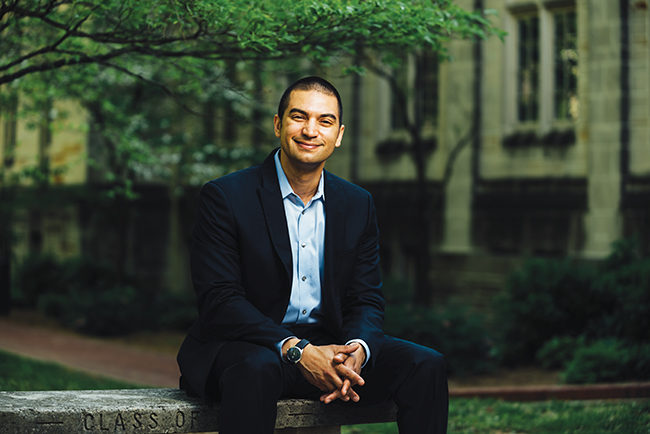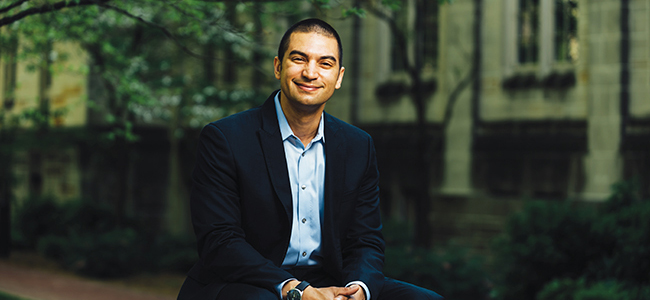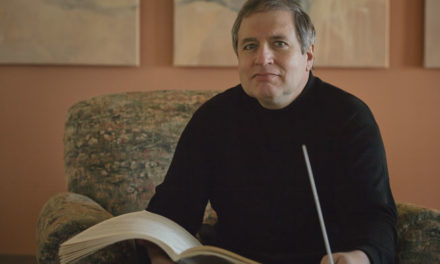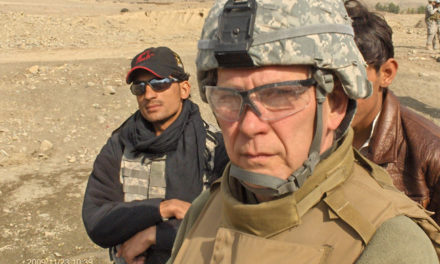
Adrian Matejka. Photo by Stephen Sproull
BY PETER DORFMAN
Adrian Matejka is profoundly grateful. It’s 2016, and he’s making a middle-class living as a poet.
Matejka, 44, is the Indiana University Creative Writing program’s poet-in-residence, a professorship funded by the Lilly Foundation. He’s attracted a succession of foundation grants and fellowships since he took up the post in 2012.
“I’m thankful every day for this,” he says. “This summer, I’m going to Europe to teach. Poems are going to take me to Chamonix, France. I get to bring my wife and daughter. It’s unbelievable — what a great gift.”
Matejka grew up in a poor black neighborhood in Indianapolis, and went to college at IU. He left Bloomington in 1995, returning 18 years later with a family and an M.F.A. from Southern Illinois University. His wife, Stacey Lynn Brown, is a fellow IU English professor.
His third book, The Big Smoke (Penguin,2013), brought to life the first African-American heavyweight boxing champion of the world, Jack Johnson, in diverse poetic forms and voices. It was a finalist for a National Book Award and a Pulitzer Prize, among other honors. He is developing a graphic novel that will continue the Jack Johnson story. His next book, Collectable Blacks, will be a poetic memoir about what it means to be poor and black in Indiana.
“You can’t talk about Jack Johnson without addressing race,” he says. “He was the child of emancipated slaves. But there were other threads to his story, about masculinity, about relationships, about domestic violence, which really was his basic flaw.”
Johnson was not, Matejka argues, the ignorant country boxer depicted in the 1967 Pulitzer Prize–winning play, The Great White Hope.
“He quit school in third grade to work, but that wasn’t uncommon,” Matejka insists. “He taught himself to play classical music. He wrote two autobiographies. He loved opera and taught himself Italian. He had flaws, but ignorance wasn’t one of them.”
Another recurring theme in Matejka’s poetry is music. As a youth he aspired to be a hip-hop artist. “Maybe I became a poet because I was a terrible rapper,” he says. “I never had the masculine bravado for mainstream rap.”
Matejka teaches an undergraduate class on hip-hop, the best of which he considers important American vernacular poetry. He also teaches poetry workshops for kids at the Fairview Elementary School.
“I’m not sure you can teach someone to be a poet,” he says. “But you can teach them how to write better poems.”











